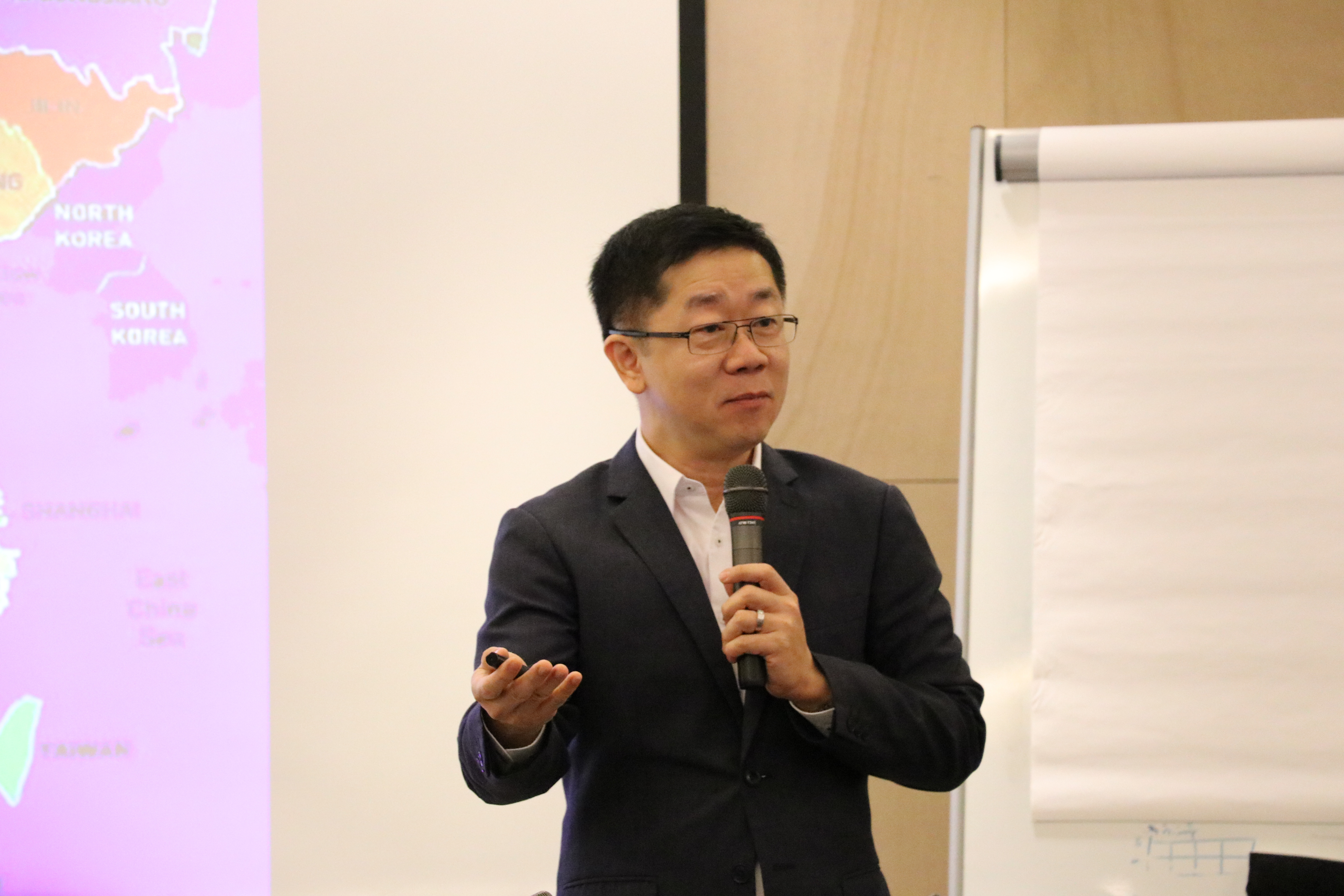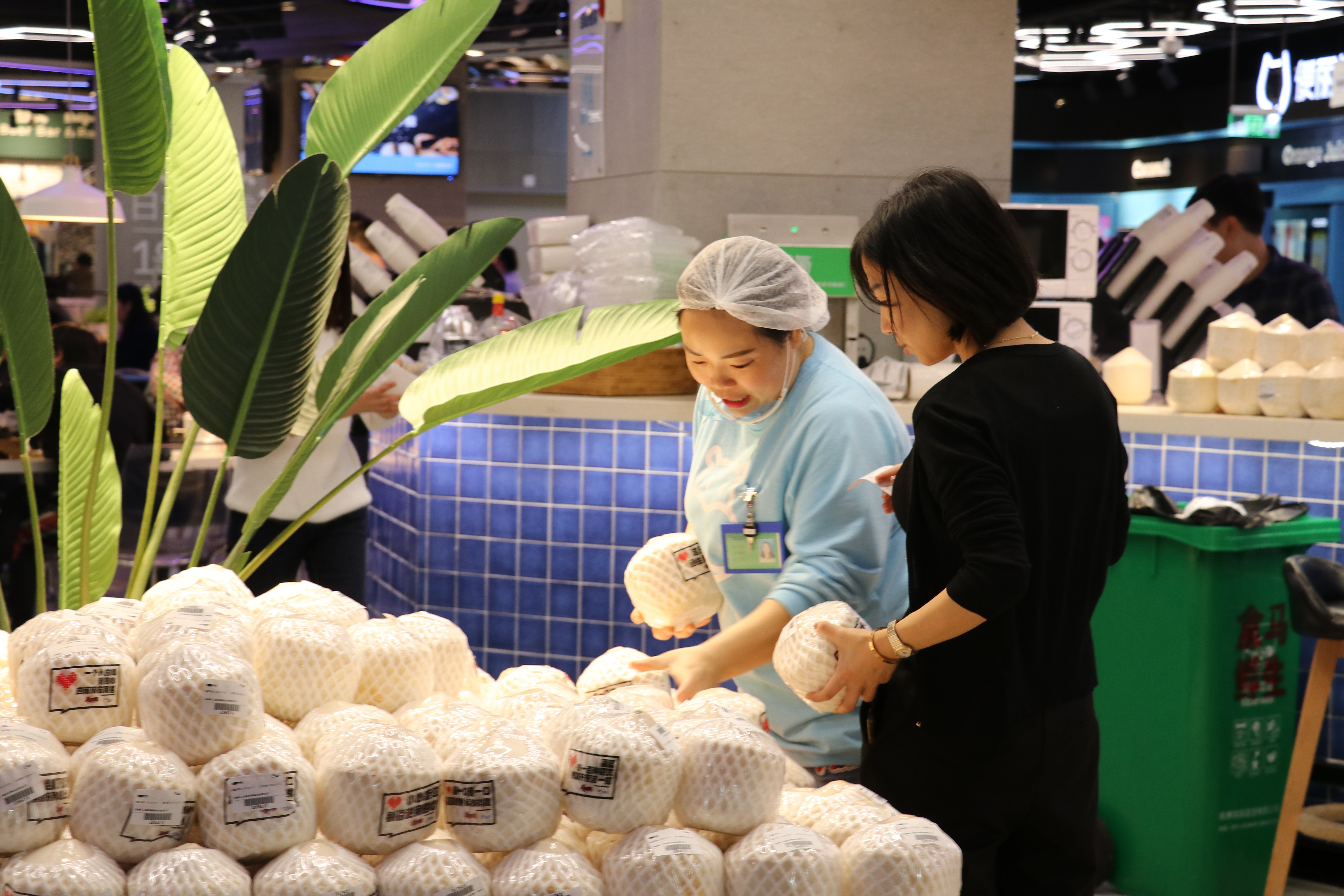9 Things Startups Need to Know to Survive in China’s Ecosystem
Startups can no longer afford to avoid venturing into the rough waters of China’s fiercely competitive market because even if you decide not to enter the mainland, China’s massive global investment is already heading to your market anyways. Here are 9 things you need to know to survive the Chinese ecosystem.
Techsauce joined the True Incube Incubation and Scale Up Program Batch 5 in their Startup Grand Prix trip to Shanghai to get an insight on China’s ecosystem. We talked to Dr. Phaichit Viboontanasarn, the secretary general and CEO of the Thai Chamber of Commerce in China on the mainland’s ecosystem and what Thai startups need to know when entering it. Before we get to the 9 key things to know about the ecosystem, let’s take a look at where the mainland’s ecosystem is now.
China’s population is 20x bigger than Thailand
There is a reason why China has been focusing connecting its provinces and the outside world with its new silk road. It is a massive country and connection is key to strengthening its economy. Shaped like a chicken and with a population 20 times larger than Thailand, Thais cannot view China as any other country. It is literally like a country made up of countries. Each region has a distinct characteristics so applying one marketing strategy for all regions is impossible. From cold to dry hot climates, consumer behavior ranges from the affluent along the coastal cities to the farmers in the inner cities.
 China is heating up
China is heating up
Despite the International Monetary Fund (IMF) group decreasing its 2018 GDP forecast for China from 6.8 to 6.6, the growth is still significant. It is equal to that of Malaysia and Indonesia combined. China knows the world economy heating up and that is why it is slowing down on purpose. A half of its deficit is from the US market.
China out to conquer the world
For the first time in 2015 China’s Outbound Direct Investment (ODI) exceeded Foreign Direct Investment (FDI). ODI flow in that year increased 18 percent to USD 145.7 billion, compared to a total of USD 135.6 billion in FDI. Phaichit praises China for its unique competitiveness.
The Chinese have a unique characteristic. They are brilliant thinkers.
Phaichit says many may not have proper education like entrepreneurs in Thailand, but ever since they were young they have had pressure to compete and survive in a deeply populated country. They apply this competitiveness to their business model. Small businesses are not afraid to fail because the Chinese government is there to support them with its expansion campaign. Their priority is to:
Create little change every year and a big change every three years.
This can be seen with the rapid construction of buildings in a big city such as Shanghai. When we say rapid, we mean it, as in one day China construct 3 floors of a building compared to 1 floor in Thailand.
Developing a netizen nation
At the beginning China was solely concentrated on developing big cities along its eastern coast, but now it is keen to counter the massive migration to those cities by developing inwards. Now workers tend to stay in their home towns instead of overcrowding big cities.
China is very clever in how they develop villages. In order to not cause too much commotion, the government first develops a richer city beside an old one they want to develop. Once the new city draws people out of the old village, the government moves into the old village to develop it.
5G is already on its way to China as the majority of its population, including the elderly, are netizens. One third of China’s population was older than 60 before the digital age was active. Elder Chinese citizens according to Phaichit have a curious nature and are open to trying new things. This is partly why,
From 2012 to 2017 it was able to increase the number of online users by around 38%, from 564 million users to 780 million users.
There is more confidence in apps for secure financial transactions. According to Phaichit,
The mobile phone is now more important than a wallet.
Phaichit believes Thailand can achieve the same with with its population. He says it is not hard to do if you think of how China, a country with 20 times more population, can do it. So if they can do it, Thailand can too. Just like China, Thailand needs to provide the resources and infrastructure to support the population for online use. The kingdom is already on its way with its Pracharat campaign to bring the Internet into remote villages. However it needs to move faster. There is a lot of benefits to getting the whole country online. China has seen a boost in its economies and knows that tech plays a vital role in strengthening its economy.
It’s time to take the offensive position
Phaichit says entrepreneurs need to change their defensive position to an offensive one. Thais are often avoid entering the Chinese market by going into others instead. However wherever you go now, you are bound to compete with Chinese entrepreneurs.
So instead of waiting for their attack, startups should move to compete with the Chinese in their own ecosystem.
Why? Just like Chinese startups, Thais need to learn that failures or challenges are good for you. Phaichit says each startup needs to have clear key performance indicators (KPI) on what they want to achieve. If it is sales or profits, it is going to take more than a few years. If you are a player with limited funds, there is no way you can negotiate a good deal with a big distributer. Instead you should start small at a city, preferably a developed one, to test your product or service and learn about how things work in the mainland in the first to second year.
 Phaichit Viboontanasarn, the secretary general and CEO of the Thai Chamber of Commerce in China
Phaichit Viboontanasarn, the secretary general and CEO of the Thai Chamber of Commerce in ChinaYou can’t conquer the whole of China within a short period of time.
If you succeed in a region or city, it is already a big gain, because the market share is significant enough to boost your business. Even if you fail, the lessons you learn will toughen you up to confidently enter any other market in the world.
Hurdles you will face in China
1. Cheating is not wrong? Back in the day the first generation of Thai businesses entering the mainland market were cheated on by locals. Going back to the competitive nature of the Chinese, Phaichit says cheating is not 100% viewed as wrong. In fact if one cheats another person, he or she views it as fair game because it just meant the person being cheated on was a fool in the first place. Now however things have change. With more transparency, Chinese authorities are clamping down on scammers.
2. Adding value to Copying China is known for its copyright infringement. It copies most things such as city infrastructure from China and agriculture processes from Thailand. However it adds value or adapts the copied method to make it better. The same thing is likely to happen to your product or service. It is just a way of life. The only advice is to take it as a compliment if you have been copied. It means that you have made it.
3. Labor cost no longer low Labor costs have increased because now employers are expected to provide welfare to workers. Five years ago, China released a new labor law that requires employers to be taxed for worker benefits. Retail space rent has also risen.
4. High competition: As mentioned, small and medium enterprises are for the most part sponsored by the government. Unlike Thai businesses that tend to fall back after one failure, Chinese entrepreneurs are encouraged confidently.
9 Things startups should do when entering China
Alright we have told you why you need to enter the Chinese market, here are 9 things you should start doing.
1. Go see China for yourself
It is not enough to study a market from afar. You need to immerse yourself in it to understand who your potential customer is and how the tough the competition is. Research can often be dated because things move fast in China so you need to seek information from places such has the Thai Chamber of Commerce in China. China can also be used as a springboard for other markets with its logistics advantage.
 Alibaba's Hema Cashless Supermarket in Hangzhou
Alibaba's Hema Cashless Supermarket in Hangzhou2. Choose the right opportunity
Pick the region you want to enter. Find out where the silk road is. See if the location you choose can lead you to nearby countries such as India. Also see with the market is fully digital or not. If it is, you may need to start online and focus on e-commerce, having a store front just to give your customer an experience.
3. Build a brand, avoid competition
If you go to the Chinese market with your product, chances are there are many competitors already. Don’t step back just yet. Chinese consumers are much more sophisticated and educated now. They can tell quality when they see it. If you are able to build trust for your brand you will be able to then enter other segments in the longterm. For example in China it has been a case where a well-known sauce brand ventured into the rice sector and was successful because people trusted the brand.
Thai products are unique and entrepreneurs need to be adaptable. For example, Mistine, a leading Thai cosmetics brand, will launch its first flagship store in Shanghai this December. Instead of advertising to working women, it has entered universities to teach students how to put on make up. It knows that once young people start using the brand, they are likely to continue using it when they enter the workforce. From their research they avoided tackling the average working women because they knew their brand was not strong yet.
Another case was Malee launching its coconut water. Most Chinese who have not visited Thailand do not know what it is because they are not used to drinking clear coconut water. So Malee got online stars to drink the product, creating a trend for a new behavior.
 Alibaba's Hema Cashless Supermarket in Hangzhou
Alibaba's Hema Cashless Supermarket in Hangzhou4. Be ready to rough it
Not every part of China is like Shanghai where there are big roads and Mercedes Benz on the street. Unpleasant toilets and oily foods are still prevalent in the inner part of China. However if you are able to grasp a bit of the developing markets, returns will be sweet.
So Phaichit suggests family businesses or startups to have at least one person dedicated to studying China before you enter it. It takes time to develop the technique to tell the difference between cheaters and good business partners. With the rapid movement the market, it is crucial you know when to innovate and adapt.
5. Be ready to really invest
This is not a game. If you are not 100% all in for your venture don’t do it. Chinese consumers expect a lot from services and products. Chinese brands go above and beyond to keep their customers.
Take for instance the popular hot bot restaurant chain, Hai Di Lao Hot Pot . It is known for pampering customers waiting in line. People are wiling to wait for may an hour for a table because the restaurant provides services such as games for children and shoe shining for adults. Employees are also given maids at home by the owner so that they can focus their energy on customers at the restaurant.
6. Copyright - Protect your IP
Register your IP right away. While Thai academics may advice startups to avoid registering in a Chinese name because it would lower the brand value, Phaichit says whether you like or not, you will be given a Chinese name when you enter China. So you might as well make Chinese name. Even big brands have Chinese names. There’s McDonald’s being called Mai-dang-Lao, Starbucks: Xin-Ba-Ke, and Coca-Coala: Ke-Kao-Ke-Le.
 Startbucks Reserve Roastery in Shanghai
Startbucks Reserve Roastery in Shanghai7. Go Digital
This is just the first digital wave we are riding. There are more to come so take advantage of it as soon as you can. As mentioned before, the smartphone is now more valuable the wallet. Big data is also important. Thai brands are already going digital with Snail White having QR code labels to guarantee quality and Malee using social media to promote its coconut water.
8. Do what you are good at
Don’t try to be something you are not. Do what you are good at because chances are if you fake it, you won’t make it. If you have a product that may be copied but provides unique quality, the average Chinese consumer will choose you. For example, Chinese tourist travel to Thailand to eat at MK Suki and After You. They have hot pot and dessert back at home, but it is not quite like these Thai brands.
9. Social Responsibility
Thailand and China have had a long amicable relationship. We are like family. So take advantage of this. Give back China’s society and you will be rewarded with trust.
More government support please
Thais are commended for their adaptability, serve-mind, and being team players. That is why they need to be given support by the government says Phaichit. In China startups receive support in low-interest loans and affordable co-working space to build up a network to work together. Should they fail due to business reasons, the government is there to pick them back up and set them on their next venture. In fact most successful startups in China have failed at least three times.
Phaichit says the same should go for Thailand. Like other countries entering the Chinese market, Thailand needs to give Thai startups the sense of security that some has go their back. They need accessible funds and assistance with co-working spaces.
Overall Phaichit says Thailand cannot rely on exports alone. It needs to seize new opportunities from the growing Chinese market.
ลงทะเบียนเข้าสู่ระบบ เพื่ออ่านบทความฟรีไม่จำกัด








